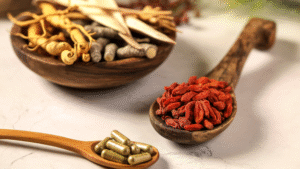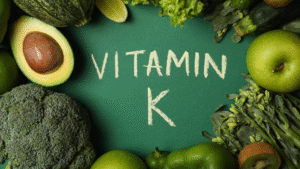Understanding folate for women over 30 and the difference between folate and folic acid could be the missing link. While both are forms of vitamin B9, their impact on women’s health—especially after 30—can vary greatly depending on genetics, diet, and life stage.
What’s the Difference Between Folate and Folic Acid?
Both folate and folic acid are forms of vitamin B9, which your body needs for cell growth, red blood cell formation, and DNA repair.
- Folate: The natural form found in whole foods like leafy greens, legumes, and citrus.
- Folic Acid: The synthetic form used in most supplements and fortified foods.
Your body must convert folic acid into the active form of B9, known as L-methylfolate (5-MTHF), before it can be used. This is where differences in absorption and health outcomes begin.
Why Women Over 30 Need Enough Folate
Folate for women over 30 is especially critical because it:
- Supports hormonal balance and metabolism
- Promotes healthy red blood cells (to fight fatigue and anemia)
- Aids detoxification and liver function
- Supports brain health and mood regulation
- Is essential for fertility and healthy fetal development
A deficiency can lead to low energy, mood changes, elevated homocysteine (linked to heart risk), and complications during pregnancy.
The MTHFR Gene Connection
An estimated 40–60% of women carry a variant in the MTHFR gene that makes it harder to convert folic acid into usable folate. If you’ve ever felt worse after taking folic acid, this could be why.
For women with MTHFR variants, methylated folate (like L-5-MTHF) is often better tolerated and more effective than standard folic acid.
Ask your provider about MTHFR testing if you’ve experienced:
- Miscarriages or fertility struggles
- Hormonal imbalances
- Depression or anxiety
- Reactions to standard multivitamins
Best Food Sources of Folate
To get more natural folate, add these to your meals:
- Spinach, romaine, kale
- Lentils, chickpeas, black beans
- Avocado
- Asparagus, broccoli, beets
- Oranges, papaya
Note: Cooking can reduce folate content, so include some raw sources when possible.
Supplement Tips: Choosing Folate Over Folic Acid
If you’re supplementing with folate for women over 30:
- Look for L-methylfolate (5-MTHF) or folinic acid on the label
- Avoid high doses of synthetic folic acid unless medically directed
- Consider a prenatal or multivitamin that uses methylated folate
- Typical supplemental doses range from 400 mcg–800 mcg daily
Folate supplements are especially recommended during preconception, pregnancy, or for women with elevated homocysteine levels.
Related Reading
Explore our full guide to essential nutrients: Top 5 Vitamins Women Over 30 Should Track
FAQ: Folate for Women Over 30
Is folate better than folic acid?
For most women, yes—especially if you have the MTHFR variant. Folate (especially as L-5-MTHF) is more bioavailable and less likely to build up unmetabolized in the blood.
Can I get enough folate from food?
You can come close, but it’s tough if you’re pregnant, under stress, or have absorption issues. Many women benefit from a gentle supplement.
Is it safe to take folate daily?
Yes. The upper intake level is high (1000 mcg from supplements). Most doses under 800 mcg are safe for long-term use.
Does folate help with hormones or mood?
Yes. Folate supports neurotransmitter function, estrogen metabolism, and detox—helping mood, PMS, and hormone regulation.
Should I test for MTHFR before switching supplements?
Not necessarily. Many women feel better on methylfolate regardless. But if you’ve had fertility issues, mood challenges, or health reactions to folic acid, testing may give insight.
Is folic acid bad for you?
Not inherently—but unmetabolized folic acid may cause issues in people who can’t convert it well. Methylfolate is a safer bet for long-term use.
A Word From Vitamins For Woman
The right form of a vitamin can make all the difference. Whether you’re supporting fertility, managing stress, or balancing hormones, folate (not folic acid) may give your body the clarity and nourishment it needs.
Remember: your genetics, diet, and stage of life all affect how nutrients work for you. Choosing smarter forms—like methylated B9—puts you back in control.
References
- Obeid, R., & Herrmann, W. (2012). The emerging role of unmetabolized folic acid in human diseases: Myth or reality? Current Drug Metabolism, 13(1), 118–130. https://doi.org/10.2174/138920012798356775
- Crider, K. S., Bailey, L. B., & Berry, R. J. (2011). Folic acid food fortification—its history, effect, concerns, and future directions. Nutrients, 3(3), 370–384. https://doi.org/10.3390/nu3030370
- Green, T. J., & Datta Mitra, A. (2017). Methylfolate vs. folic acid: a review of medical literature. Nutrition Reviews, 75(12), 1009–1023. https://doi.org/10.1093/nutrit/nux036
- Lucock, M. (2000). Folic acid: nutritional biochemistry, molecular biology, and role in disease processes. Molecular Genetics and Metabolism, 71(1-2), 121–138. https://doi.org/10.1006/mgme.2000.3027
- Bailey, S. W., & Ayling, J. E. (2009). The extremely slow and variable activity of dihydrofolate reductase in human liver and its implications for high folic acid intake. PNAS, 106(36), 15424–15429. https://doi.org/10.1073/pnas.0902072106







